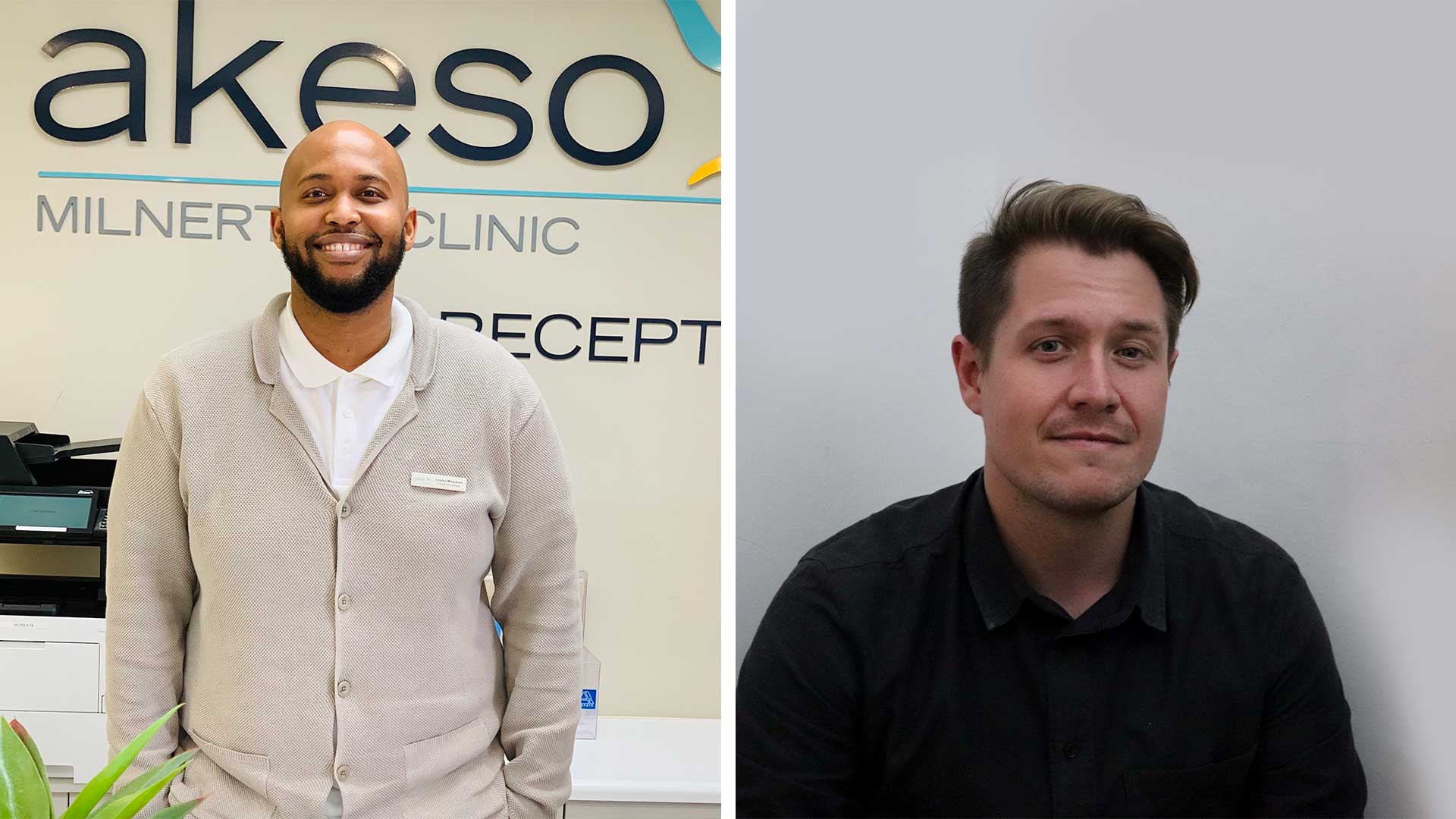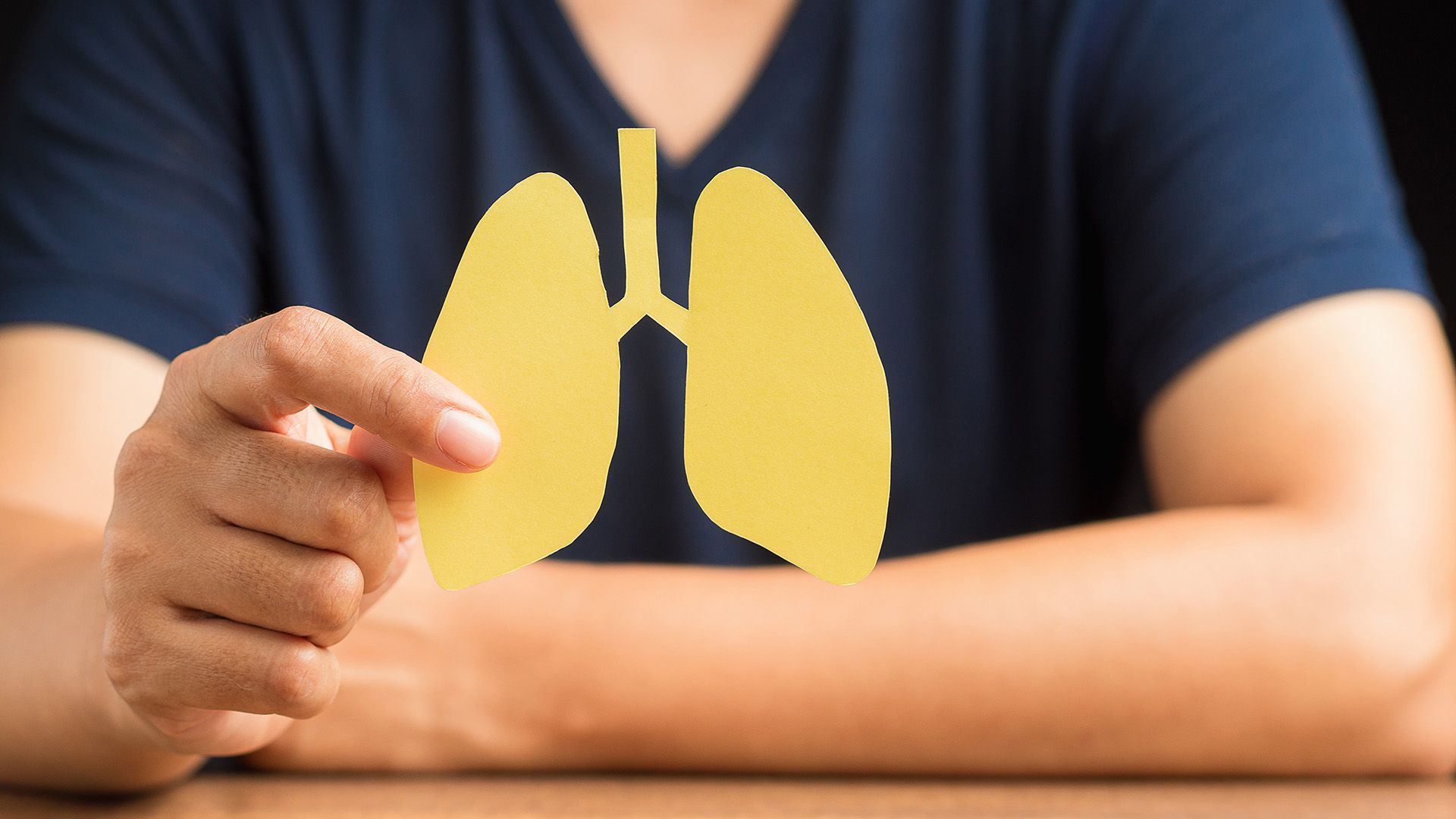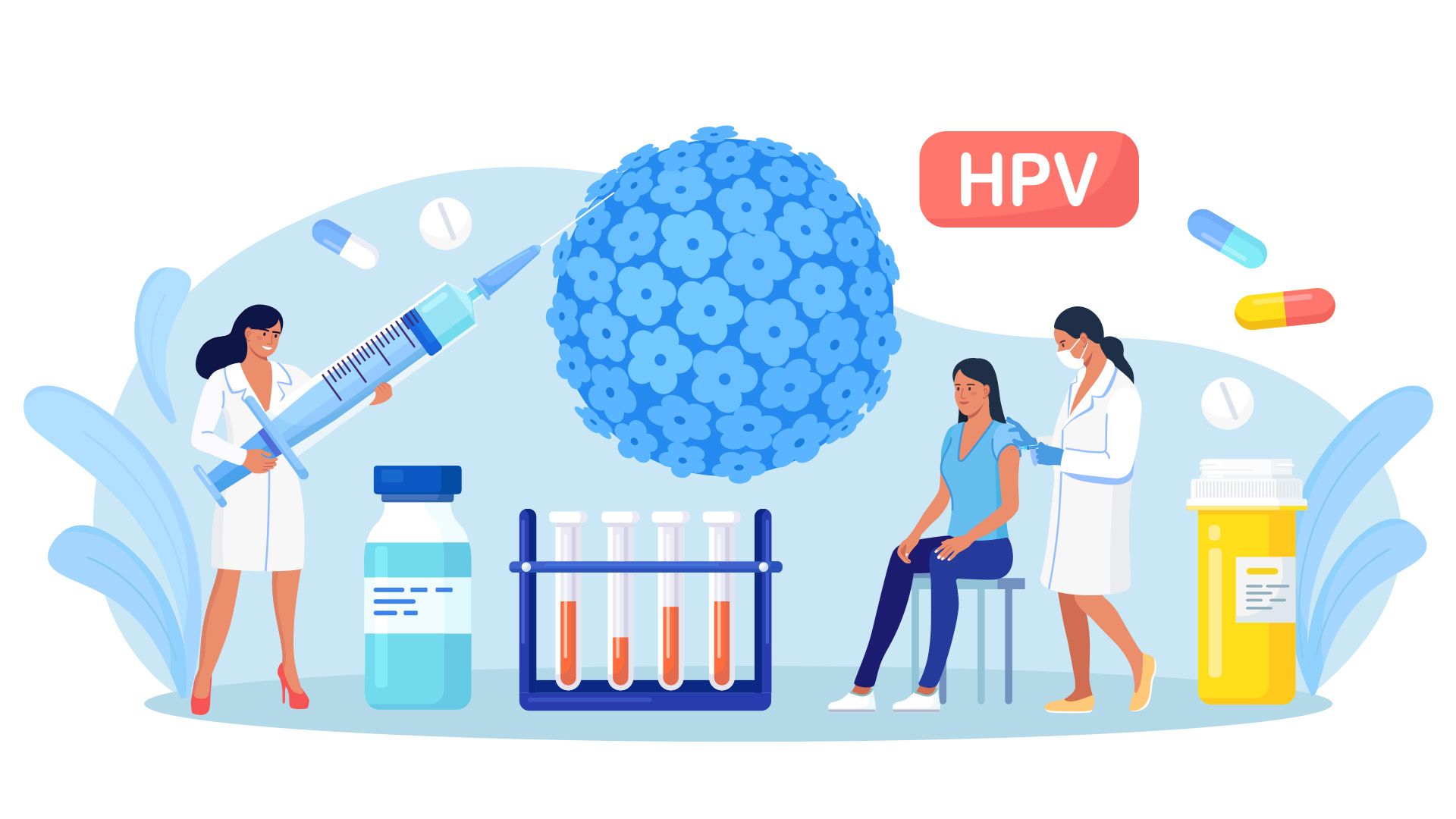The power of talking it out
Loyiso Maqubela, a clinical psychologist practising at Akeso Milnerton on the left and Alexander Oosthuysen, a clinical psychologist at Akeso Parktown in Johannesburg
Mental health not to be overlooked this Men’s Health Month
Have you ever said the words, or heard someone say: “Boys don’t cry”? According to mental health experts, the historical gender role-based norm of encouraging men to suppress their feelings and act strong has had a destructive impact on the male population. However, with a more conscious approach, this can change.
Loyiso Maqubela, a clinical psychologist practising at Akeso Milnerton, a private mental health facility in Cape Town, notes that men are facing a ‘silent crisis’. This is underscored by the World Health Organization reporting that men in South Africa are four times more likely to commit suicide than women*. “This should indicate far higher rates of depression amongst men in South Africa, and yet we see significantly more women seeking help for depression,” he says.
Maqubela considers that the way in which men present mental health issues may be misread and pathologised as disordered behaviour: “Presenting with anger and frustration, acting out physical violence, engaging in substance abuse and similar behaviours may often relate to suppressed mental health issues and may indicate depression.”
Finding a similar set of circumstances in his own professional experience, Alexander Oosthuysen, a clinical psychologist at Akeso Parktown in Johannesburg, notes that around 80% of the general population seeking help for conditions such as depression at the mental health facility, is female. “On the other hand, approximately 75-85% of those receiving treatment for substance abuse and similar disorders are male.”
Silenced from the roots
Oosthuysen points out that from a young age, boys are told not to show their feelings. For example, someone might say ‘take it like a man’ or ‘man up’ when advising another not to express natural feelings of discomfort. Likewise, men will often support one another by suggesting a night out at a bar in place of a conversation about an issue at hand.
“It often starts at home, when parents feel the need to redirect their children – and boys in particular – from showing emotion. This sends a message that there is shame in certain feelings when in fact there is power in being able to name emotions and to face difficult experiences head on. It is also important to be mindful of what we portray to young people and how this can affect their view of themselves in the world,” he says.
According to Maqubela, men are faced with a double-edged sword, where they may feel that seeking help is problematic as it goes against societal constructs of what a ‘strong or masculine’ man should be. “On the other hand, not getting the professional help needed can leave the individual feeling misunderstood and alone.
“At the heart of this dilemma is the idea of vulnerability, which does not mean the same thing to everyone. It is the job of a therapist to help navigate this and create a space, in which the individual can explore vulnerability on their own terms,” he says.
It happens to everyone
Maqubela points out that both men and women at times face enormous change in life, which may trigger some mental health difficulties. These might include major events, such as marriage, becoming a parent, relocating, changing career, divorce, losing a job, change in financial status, or loss of a loved one, for example.
“These types of events can affect how you view yourself and can trigger a very wide range or a particularly intense experience of emotions. It is important for the individual in question to be able to express and address these feelings. Emotions are just part of the contract in this thing called life,” says Maqubela.
When to get help
Oosthuysen likens seeking help to a driving metaphor: “If you are at the wheel and it’s starting to get a little dark but you’re unsure whether you need to have the lights on yet, then you should turn them on. Therapy is much the same – if you are starting to wonder whether you need it, you probably do.
According to the experts, there are certain warning signs that tend to present in people experiencing mental health issues, such as:
- An inability to function normally on a daily basis
- Decreased self-care
- A change in relationships
- Dramatic changes in sleep pattern
- Unintentional changes in eating patterns
- An increase in risky behaviour
- An increase in apathy
- Being emotionally dysregulated – an emotional state or response that is not normal for the individual and would be considered deeply worrying
Finding the right fit and feeling supported
When it comes to starting therapy, Oosthuysen notes that finding the right therapist is very personal. “It is not like buying paracetamol and any pharmacy will do. You need to find a therapist that you are comfortable with,” he says.
For concerned loved ones, Maqubela emphasises that unless the person is not of sound mind it is important to take a supportive stance rather than trying to take over. “It may be good to start by saying something like ‘I am concerned and I’d like to know how I could support you at this time.’ If the individual responds positively then you could suggest professional help and research a selection of mental health experts who are male, as many men prefer talking to a male therapist.
“Bear in mind that the individual is more likely to try therapy if someone else they know has had a positive experience with it. It may also mean looking at different types of therapy. Group therapy in different settings, such as on a hike in nature, can often work well for men. Remember, it’s not about rescuing the person. It’s about empowering him,” he concludes.
For information about concentration and memory concerns or accessing mental health services or if you are in an emotional crisis, Akeso is here to help. Contact info@akeso.co.za or visit www.akeso.co.za or www.copetherapy.co.za. In the event of a psychological crisis, emergency support can be reached at 0861 435 787, 24 hours a day.
Out-patient psychologist and occupational therapist consultations can be booked via www.copetherapy.co.za and psychiatrist consultations through Netcare appointmed™, online at www.netcareappointmed.co.za or by calling 0861 555 565. The COPE Therapy website www.copetherapy.co.za also contains many useful blog posts on various issues and tips relating to mental health.
* https://www.who.int/publications/i/item/suicide-in-the-world













